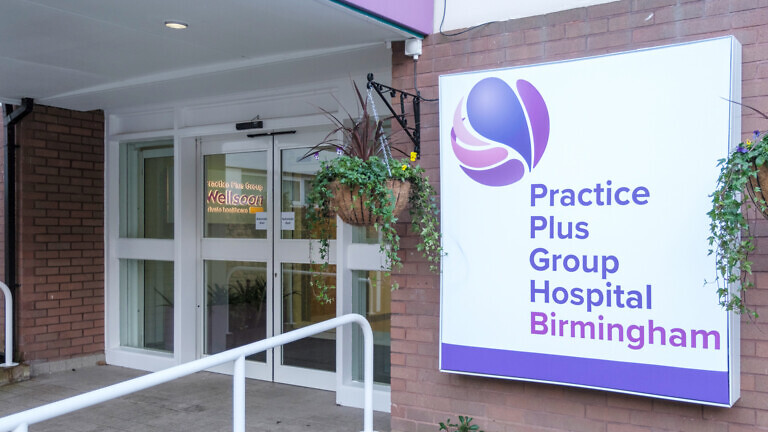Danielle Delaney-Anderson, principal technical consultant at Answer Digital, examines what NHS programmes can learn from the National Document Repository approach to data sharing.
In light of the 10 Year Health Plan, the recently announced Data (Use and Access) Act 2025 represents a critical turning point for the NHS. For too long, patient data has been locked away in silos and has been inaccessible across care settings. The Act seeks to change that. It follows the principle that data must be used to its full advantage, securely and ethically, and explicitly for the benefit of patients, clinicians, and the wider system.
If the NHS is to make good on this legislative mandate, it needs concrete examples of what ‘good’ looks like; it needs cases that already embody the spirit of the Act and prove what is possible. The National Document Repository (NDR) is one such example.
Delivered in partnership with Answer Digital and MadeTech, the NHS England NDR has transformed one of the most outdated and wasteful practices in healthcare – the management of historical Lloyd George paper records – historical, paper-based patient files used by UK general practices, named after prime minister David Lloyd George and his 1911 National Health Insurance scheme – into a secure, cloud-based, national service. In doing so, it demonstrates the value of an approach that is designed around users, underpinned by robust governance, and engineered with the ability to scale.
The NDR went from inception to live service within six months and emerged as a response to the inefficiency and risk of physically transferring Lloyd George records whenever a patient moved to a different GP practice. This manual process of printing, posting, processing, and re-scanning could take up to eight weeks; it created duplicate records, exposed sensitive information to loss or damage, and cost the NHS millions annually. In some cases, a patient’s historical record could take more than a year to arrive at its destination, depriving clinicians of crucial information at the point of care.

Simplicity on a national scale
The ambition for the NDR was radical in its simplicity: to remove the delay entirely by creating a national digital repository that was secure, scalable, and instantly accessible. Initially piloted with 40 GP practices in Birmingham and Solihull, the project began by digitising legacy records for these surgeries and building a cloud infrastructure to house the information.
During the pilot’s ingestion of 400,000 patient records, it became clear that nearly 20% of these records actually belonged to more than 4,000 other GP practices across the country. This discovery forced the programme to accelerate its move to a national scale, developing a platform that could process 250,000 records in a single weekend and deliver a service accessible to thousands of practices across England.
Crucially, the team avoided building a bespoke, high-maintenance integration into existing NHS IT systems. Instead, they designed a zero-integration, cloud-based solution that bypassed traditional onboarding barriers and allowed practices to begin using it almost immediately.
One of the most significant achievements of the NDR is how it addressed governance. Data sharing in the NHS has historically been challenging, with conflicting legal interpretations and the need for numerous individual agreements. The NDR overcame this by securing approval as a National Data Processing Deed, which authorised the service to act as a data processor on behalf of all GP practices without requiring separate data-sharing agreements. This governance breakthrough, achieved through close collaboration between NHS England’s legal, data, and delivery teams, turned what could have been a years-long compliance obstacle into a driver of transformation.
Throughout the development of the programme, the delivery team prioritised the involvement of the people who would use the system. Practice managers, administrators, and clinical leads were engaged continuously through co-design sessions, user testing, and regular demonstrations. Feedback from these sessions directly shaped the functionality and user experience of the platform.
As a result, the system earned widespread approval from its users and when the first national webinar to showcase the platform was launched, registrations exceeded capacity by 200%, proof of genuine demand.
The impact of the NDR has been immediate. Patients now experience faster, safer care because their full record is available to their new practice as soon as they re-register. For practices, the NDR has also eliminated the costs of storing and transferring physical records. In one documented case, a practice saved more than £50,000 per year by routing records through the NDR instead of paying private providers to digitise them. At scale, the system already delivers weekly savings of around £20,000, with even greater financial and operational benefits expected as more practices come on board.
A blueprint
The NDR has also proven its ability to scale under real-world demand. It is on a trajectory to have processed four million records by the end of March next year. The number of active users exceeds 3,000 in a single week, and demand for information sessions has far outstripped supply, with webinars oversubscribed by significant margins. This appetite has been driven by the service’s proven value, rather than imposed centrally.
While conceived to address a primary care problem, the NDR is already being integrated into wider NHS digital strategies. Secondary care use cases are under development, including the digital delivery of trust letters through the NHS App. The system is even being explored for use in health prisons, where paper records are prohibited, offering a compliant and secure alternative.
In the context of the Data (Use and Access) Act 2025, the NDR proves that it is possible to unlock the full value of NHS data without compromising trust, security, or efficiency. It delivers immediate, visible benefits for patients, clinicians, administrators, and system leaders.
As the NHS turns its focus to implementing the Act alongside the 10 Year Health Plan, it should look to the NDR not simply as a success story but as a blueprint for how to approach data-driven transformation. The programme’s success has been built on principles that the Act now formalises accessibility, accountability, user engagement, and measurable value.
The NDR has already become a strategic national asset, and now the NHS has the opportunity and the legislative guidance to replicate this kind of thinking. The NDR shows that when the right approach is taken, data can become a driver of efficiency, safety and improved patient care rather than an obstacle.



